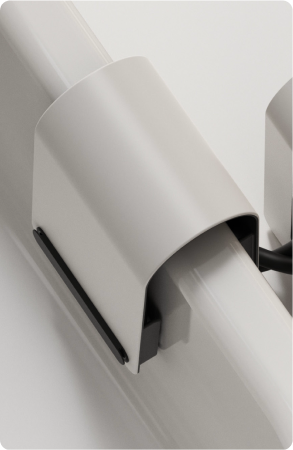
Our Vision of Future Healthcare
The Future of Health Care: Holistic Solutions Revolutionizing Wellness
Introduction
The world of health care is undergoing a transformative shift. Gone are the days when health care was solely about treating symptoms. Today, the future of wellness lies in holistic solutions—approaches that nurture the mind, body, and spirit. Imagine a future where you proactively care for your health with regular sauna sessions, cold plunges, meditation, and balanced eating. This is not a distant dream; it's a fast-approaching reality.
The growing popularity of holistic health care reflects society's desire to move beyond reactive treatments and embrace a proactive approach to well-being. These methods not only improve health but also empower individuals to lead more balanced lives.
Understanding Holistic Health Care
Holistic health care focuses on treating the person as a whole—body, mind, and spirit—rather than just addressing symptoms. It aims to restore balance and harmony, promoting long-term wellness rather than offering temporary fixes. Practices such as yoga, meditation, and clean eating are integral to this approach, providing physical, emotional, and mental benefits.
Traditional medicine often concentrates on diagnosing and treating specific illnesses. While this approach is crucial in emergencies, it can overlook the root causes of chronic issues. Holistic health care, on the other hand, emphasizes prevention, considering lifestyle, diet, and emotional well-being as critical factors in maintaining health.
Key Holistic Health Practices Shaping the Future
Sauna Therapy for Detoxification and Relaxation
Sauna therapy has become a wellness staple for a reason. It enhances circulation, reduces stress, and promotes detoxification by encouraging the body to sweat out impurities. Regular sauna use can also lower blood pressure, improve cardiovascular health, and relieve muscle soreness. Research supports its ability to boost overall longevity and quality of life.
The Rise of Cold Plunge Therapy
Cold plunging—immersing yourself in icy water—is gaining traction as a powerful holistic practice. This method isn’t just for thrill-seekers; it reduces inflammation, sharpens focus, and boosts energy levels. Cold water exposure also helps regulate mood and strengthen the immune system, making it a favorite among wellness enthusiasts and athletes alike.
Meditation as a Mental Health Game-Changer
In a world full of stress and distractions, meditation stands out as a tool for mental clarity and peace. Regular meditation reduces stress, improves focus, and can even alleviate symptoms of anxiety and depression. Studies have shown that mindfulness practices can rewire the brain, enhancing resilience and emotional regulation.
Nutrition as the Cornerstone of Health
“You are what you eat” is more than just a saying—it’s a principle of holistic health care. Consuming nutrient-dense foods helps combat inflammation, boost immunity, and reduce the risk of chronic diseases like diabetes and heart disease. Adopting a diet rich in fruits, vegetables, and whole grains can transform your energy levels and overall health.
Supporting Evidence to Move Towards Holistic Practices
A growing body of research backs the effectiveness of holistic solutions. Studies demonstrate how sauna therapy aids cardiovascular health, how cold plunges reduce cortisol levels, and how meditation enhances mental well-being. These findings are helping bridge the gap between traditional and holistic medicine.
Technology is revolutionizing access to holistic practices. Wearable devices track heart rate variability to measure stress, while apps provide guided meditations and personalized meal plans. These tools are making holistic care more accessible than ever.
To maximize benefits, traditional and holistic health practitioners are beginning to collaborate. This integrated approach ensures patients receive comprehensive care, blending the best of both worlds for optimal results.
Challenges in Embracing Holistic Health Care
Holistic health has faced its share of skepticism. Critics often cite a lack of evidence for certain practices. However, as more studies validate these approaches, their credibility in the medical community continues to grow.
Despite its benefits, holistic care can be costly or geographically inaccessible for some. Efforts are needed to ensure these practices become universally available, so everyone can benefit from this transformative approach.
The Long-Term Impact of Holistic Health Care
By emphasizing prevention, holistic health care can alleviate pressure on traditional health systems. Fewer chronic diseases mean fewer hospital visits, freeing resources for acute care.
Holistic health care shifts the responsibility of wellness to individuals, encouraging them to adopt healthier lifestyles and practices. This empowerment fosters a culture of proactive self-care and resilience.
The future of health care is undeniably holistic. By integrating practices like sauna therapy, cold plunges, meditation, and mindful eating into our routines, we can redefine what it means to be healthy. Holistic solutions not only improve our physical and mental health but also help create a balanced and fulfilling life. It’s time to embrace these powerful tools and pave the way for a healthier future.
FAQs
- What is holistic health care, and why is it gaining popularity? Holistic health care focuses on the whole person—mind, body, and spirit—emphasizing prevention and balance over treating symptoms alone. Its rising popularity stems from its long-term health benefits and ability to address root causes of illness.
- How does sauna therapy contribute to overall wellness? Sauna therapy improves circulation, aids detoxification, and reduces stress, making it a powerful tool for relaxation and overall health improvement.
- Can meditation replace traditional mental health treatments? While meditation is highly beneficial, it is most effective when used alongside traditional treatments for conditions like anxiety and depression.
- What are the most accessible holistic practices for beginners? Meditation, balanced eating, and gentle exercise like yoga are easy and cost-effective ways to start a holistic health journey.
- Is there scientific evidence supporting holistic health solutions? Yes, numerous studies validate the benefits of practices like meditation, sauna therapy, and proper nutrition, proving their effectiveness in improving overall health.


